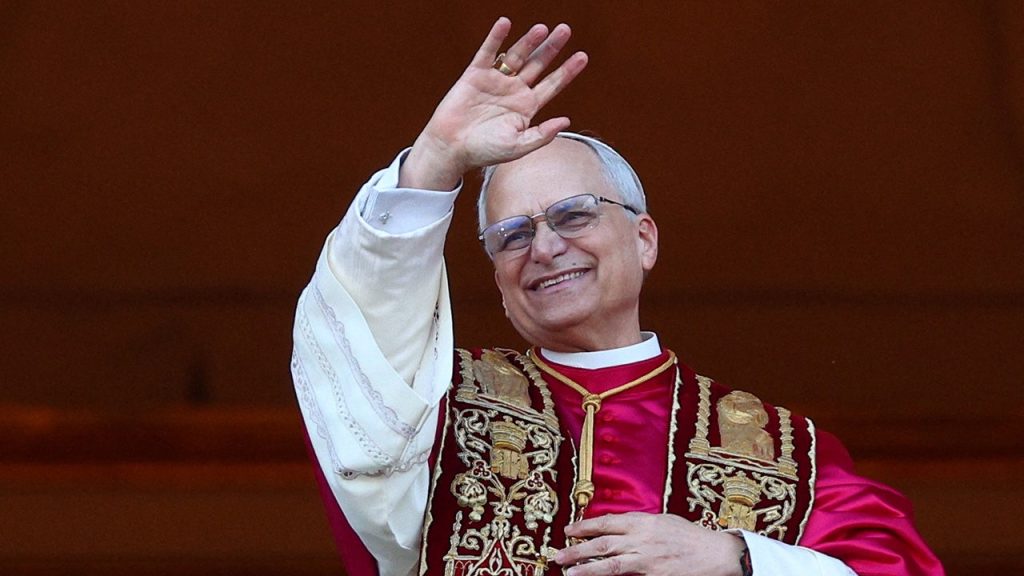In a momentous occasion witnessed by thousands in St. Peter’s Square, Cardinal Protodeacon Dominique Mamberti formally introduced the newly elected Pope Leo XIV to the world. Born Robert Francis Prevost, the first American pontiff was chosen on May 8, 2025, emerging victorious after a series of four conclave votes cast by the College of Cardinals. His election not only marks a significant milestone in Catholic Church history but also brings a wave of pride to his hometown of Chicago and his alma mater, Villanova University.
| Article Subheadings |
|---|
| 1) The Election of Pope Leo XIV |
| 2) Background and Early Life |
| 3) Significance of His Election |
| 4) Reactions from the Global Community |
| 5) The Legacy of Pope Leo XIII |
The Election of Pope Leo XIV
On May 8, 2025, the Roman Catholic Church made history by electing its first American pope, Robert Francis Prevost, who chose the name Pope Leo XIV. The election occurred after an intensive conclave, during which 133 cardinals cast their votes in four rounds. Each round reflected not only the election’s urgency but also the challenges facing the Catholic Church globally. The newly appointed pope, addressing the world for the first time, promised to lead with compassion and a renewed commitment to faith. This moment was particularly poignant in St. Peter’s Square, as a sea of faithful gathered to witness the event, their eyes filled with tears of joy and anticipation.
Background and Early Life
Born in Chicago, Illinois, Robert Prevost is deeply rooted in American Catholicism. After receiving his elementary education in local Catholic schools, he went on to study at Villanova University, where he graduated in 1977. His background in a vibrant urban setting combined with rigorous academic training laid the foundation for his spiritual journey. He joined the Augustinian order, which has played a vital role in shaping his theological perspectives. Over the years, as Father Prevost transitioned to higher ecclesiastical responsibilities, he gained recognition for his dedication to both pastoral duties and community outreach.
Significance of His Election
The election of Pope Leo XIV is not just a groundbreaking event for the American Catholic community; it boldly marks a shift in the Catholic Church’s approach to leadership. Historically, the papacy has been dominated by European figures, but Prevost’s ascension to the papal seat embodies a more inclusive vision for the Church. As he steps into this prominent role, many speculate on his potential to bridge cultural divides and address contemporary issues such as social justice, immigration, and climate change.
“His election is a beacon of hope for many Catholics who are seeking more representation in the highest echelons of the Church,”
noted Patrick Brennan, a Villanova University professor. The significance of this moment resonates not only within religious circles but also among global leaders.
Reactions from the Global Community
News of Pope Leo XIV’s election has been met with widespread acclaim from various sectors, including political dignitaries and religious organizations alike. Leaders around the world expressed their warm congratulations, recognizing the potential for new collaborative efforts between the Church and secular governments. Social media platforms erupted in celebrations, showcasing a sense of unity and renewed interest in the Catholic faith, especially among the youth. Donald Trump, the former U.S. President, applauded the election, stating,
“It’s time for a fresh perspective in the Vatican.”
This sentiment was echoed by many who believe that an American pope may bring a rejuvenated focus on pressing global issues.
The Legacy of Pope Leo XIII
Choosing the name Leo XIV, Prevost signals an awareness of the legacy established by his namesake, Pope Leo XIII, known for his progressive social approaches and encyclicals addressing labor and justice. In a world marred by division and inequality, many hope that Leo XIV will follow in these footsteps and champion causes that advance human dignity.
“His choice of name suggests a commitment to addressing not only the Church’s internal matters but also its role in global social justice,”
shared Marianne Smith, a Church historian.
| No. | Key Points |
|---|---|
| 1 | Pope Leo XIV is the first American pope, elected on May 8, 2025. |
| 2 | His election is seen as a significant shift towards inclusivity within the Church. |
| 3 | Prevost’s selection may lead to a renewed focus on social justice issues. |
| 4 | Reactions from global leaders indicate broad support for his new role. |
| 5 | The legacy of Pope Leo XIII serves as a potential framework for Leo XIV’s papacy. |
Summary
The election of Pope Leo XIV signifies a historical turning point for the Catholic Church, highlighting not only the evolution of its leadership but also a greater engagement with contemporary global issues. As society navigates complex challenges, the new pope’s approach could redefine the Church’s role in addressing societal inequities. His ascension is a source of inspiration for many, reflecting a hope for a united and compassionate future.
Frequently Asked Questions
Question: What does the name Leo XIV signify for the newly elected pope?
The name Leo XIV signifies respect for the legacy of Pope Leo XIII, known for his focus on social justice and labor rights, suggesting that the new pope may follow in his footsteps.
Question: Who is Robert Francis Prevost?
Robert Francis Prevost, now known as Pope Leo XIV, is the first American pope, born and raised in Chicago, and served in the Augustinian order.
Question: What challenges may Pope Leo XIV face during his papacy?
Pope Leo XIV may face challenges such as addressing social justice issues, navigating contemporary moral dilemmas, and fostering unity within the global Catholic community.


